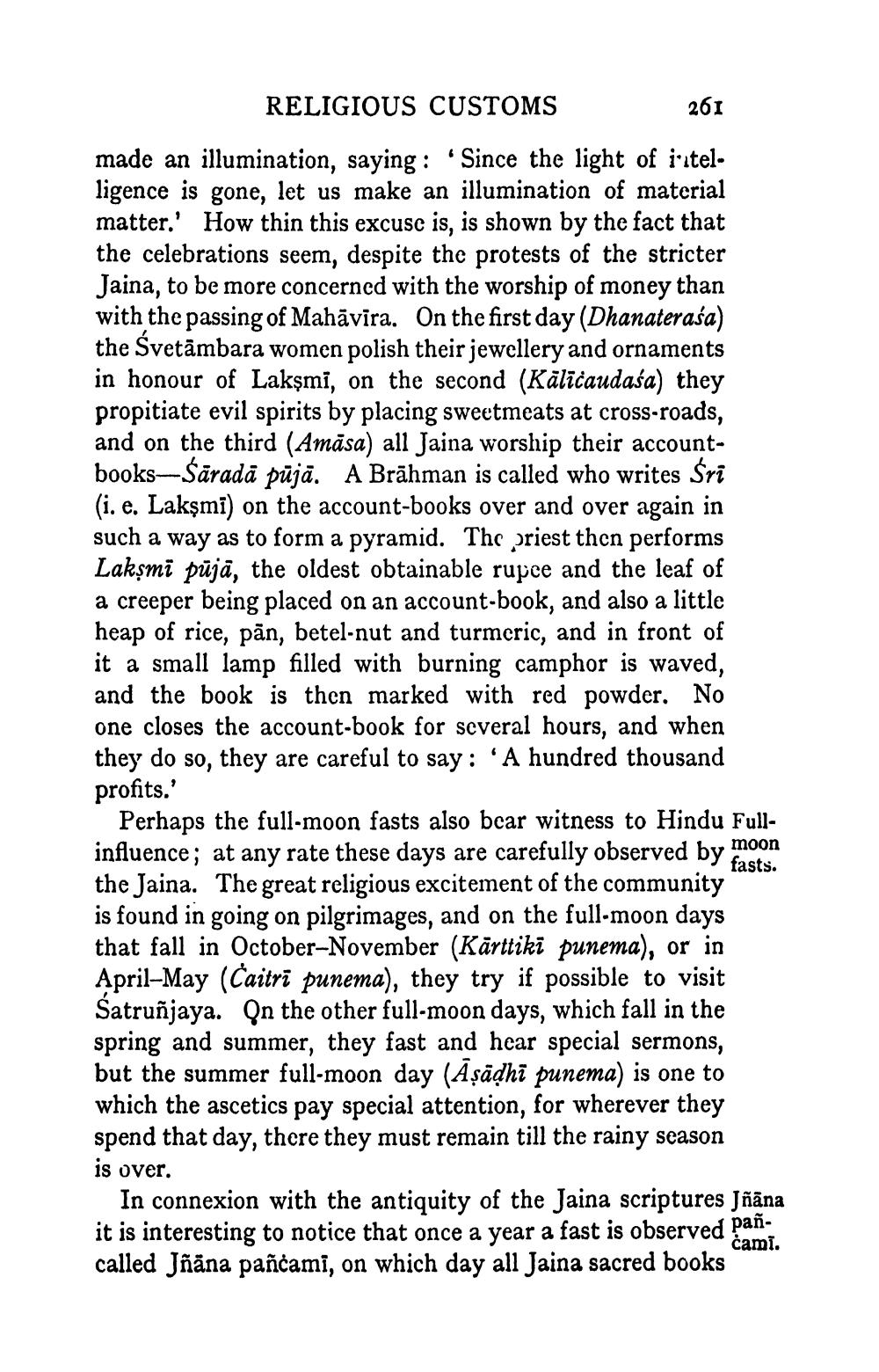________________
261
RELIGIOUS CUSTOMS made an illumination, saying : Since the light of i'itel. ligence is gone, let us make an illumination of material matter.' How thin this excusc is, is shown by the fact that the celebrations seem, despite the protests of the stricter Jaina, to be more concerned with the worship of money than with the passing of Mahāvira. On the first day (Dhanaterasa) the Svetāmbara women polish their jewellery and ornaments in honour of Lakşmi, on the second (Kālīcaudaśa) they propitiate evil spirits by placing sweetmeats at cross-roads, and on the third (Amāsa) all Jaina worship their accountbooks-Sārada pājā. A Brāhman is called who writes Sri (i.e. Lakşmī) on the account-books over and over again in such a way as to form a pyramid. The priest then performs Lakşmi pājā, the oldest obtainable rupce and the leaf of a creeper being placed on an account-book, and also a little heap of rice, pân, betel-nut and turmeric, and in front of it a small lamp filled with burning camphor is waved, and the book is then marked with red powder. No one closes the account-book for several hours, and when they do so, they are careful to say: 'A hundred thousand profits.'
Perhaps the full-moon fasts also bcar witness to Hindu Fullinfluence; at any rate these days are carefully observed by moon the Jaina. The great religious excitement of the community is found in going on pilgrimages, and on the full-moon days that fall in October-November (Kārttiki punema), or in April-May (Caitrī punema), they try if possible to visit Šatruñjaya. In the other full-moon days, which fall in the spring and summer, they fast and hear special sermons, but the summer full-moon day (Aşadhi punema) is one to which the ascetics pay special attention, for wherever they spend that day, there they must remain till the rainy season is over.
In connexion with the antiquity of the Jaina scriptures Jñāna it is interesting to notice that once a year a fast is observed pan called Jñäna pañcami, on which day all Jaina sacred books




